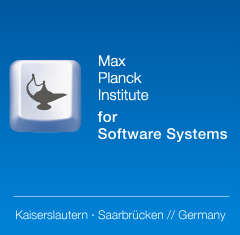This article includes a list of references, related reading or external links, but its sources remain unclear because it lacks inline citations .(February 2013) (Learn how and when to remove this template message) |
International Max Planck Research School for Neurosciences , also known as IMPRS for Neurosciences, is a 1½-year MSc program or a 4-year PhD program with a possibility to have MD-PhD degree for those who have completed a medical school. The first year is common for both tracks, after which students take a qualifying examination and decide whether to work towards a MSc or PhD thesis. A maximum of twenty students are admitted annually to the program, half of whom are to be international students.
A medical school is a tertiary educational institution, or part of such an institution, that teaches medicine, and awards a professional degree for physicians and surgeons. Such medical degrees include the Bachelor of Medicine, Bachelor of Surgery, Doctor of Medicine (MD), or Doctor of Osteopathic Medicine (DO). Many medical schools offer additional degrees, such as a Doctor of Philosophy (Ph.D), Master's degree (M.Sc), a physician assistant program, or other post-secondary education.

A student is primarily a person enrolled in a school or other educational institution who attends classes in a course to attain the appropriate level of mastery of a subject under the guidance of an instructor and who devotes time outside class to do whatever activities the instructor assigns that are necessary either for class preparation or to submit evidence of progress towards that mastery. In the broader sense, a student is anyone who applies themselves to the intensive intellectual engagement with some matter necessary to master it as part of some practical affair in which such mastery is basic or decisive.
As Göttingen is regarded as one of the focal points in neuroscience research in Germany, this international graduate school is providing various and diverse research opportunities in the fields of the neuroscience, biochemistry, structural biology and related disciplines.

Göttingen is a university city in Lower Saxony, Germany, the capital of the eponymous district. It is run through by River Leine. At the start of 2017, the population was 134,212.

Neuroscience is the scientific study of the nervous system. It is a multidisciplinary branch of biology that combines physiology, anatomy, molecular biology, developmental biology, cytology, mathematical modeling and psychology to understand the fundamental and emergent properties of neurons and neural circuits. The understanding of the biological basis of learning, memory, behavior, perception, and consciousness has been described by Eric Kandel as the "ultimate challenge" of the biological sciences.

Research comprises "creative and systematic work undertaken to increase the stock of knowledge, including knowledge of humans, culture and society, and the use of this stock of knowledge to devise new applications." It is used to establish or confirm facts, reaffirm the results of previous work, solve new or existing problems, support theorems, or develop new theories. A research project may also be an expansion on past work in the field. Research projects can be used to develop further knowledge on a topic, or in the example of a school research project, they can be used to further a student's research prowess to prepare them for future jobs or reports. To test the validity of instruments, procedures, or experiments, research may replicate elements of prior projects or the project as a whole. The primary purposes of basic research are documentation, discovery, interpretation, or the research and development (R&D) of methods and systems for the advancement of human knowledge. Approaches to research depend on epistemologies, which vary considerably both within and between humanities and sciences. There are several forms of research: scientific, humanities, artistic, economic, social, business, marketing, practitioner research, life, technological, etc.
Participating institutions in this program are:
- University of Göttingen
- Max Planck Institute for Biophysical Chemistry (MPI-bpc)
- Max Planck Institute for Experimental Medicine (MPI-em)
- Max Planck Institute for Dynamics and Self-Organization (MPI-ds)
- German Primate Center (DPZ) - Leibniz Institute
- European Neuroscience Institute Göttingen (ENI)

The University of Göttingen is a public research university in the city of Göttingen, Germany. Founded in 1734 by George II, King of Great Britain and Elector of Hanover, and starting classes in 1737, the Georgia Augusta was conceived to promote the ideals of the Enlightenment. It is the oldest university in the state of Lower Saxony and the largest in student enrollment, which stands at around 31,500.
The Max Planck Institute for Biophysical Chemistry in Göttingen is a research institute of the Max Planck Society. Currently, 850 people work at the institute, about half of them are scientists.

The Max Planck Institute of Experimental Medicine is located in Göttingen, Germany. It was founded as Kaiser Wilhelm Institute for Medical Research in 1947, and was renamed in 1965. It is one of 80 institutes in the Max Planck Society (Max-Planck-Gesellschaft). Prof. Dr. Klaus-Armin Nave is currently the acting director of the institute.









